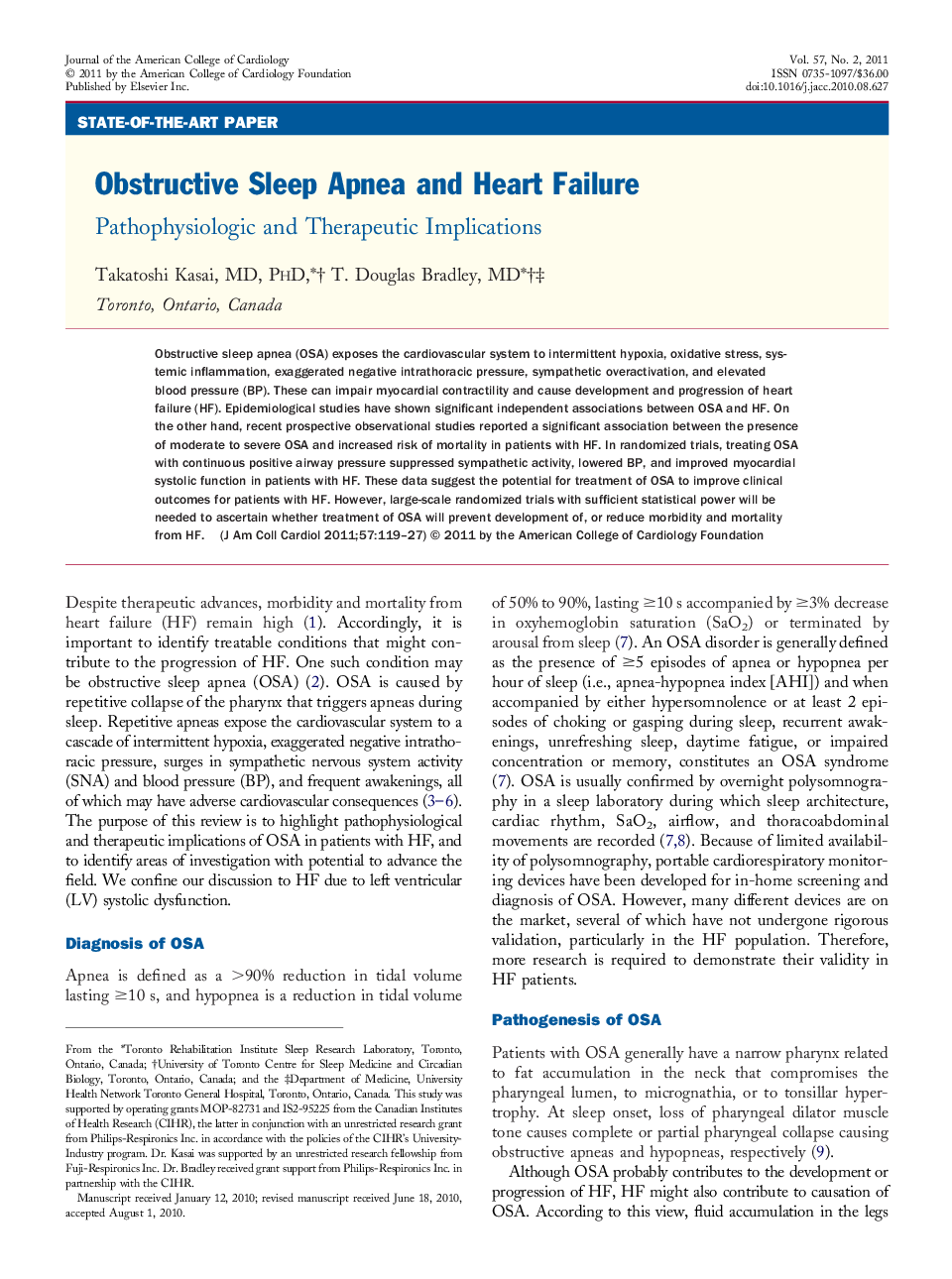| Article ID | Journal | Published Year | Pages | File Type |
|---|---|---|---|---|
| 2949932 | Journal of the American College of Cardiology | 2011 | 9 Pages |
Obstructive sleep apnea (OSA) exposes the cardiovascular system to intermittent hypoxia, oxidative stress, systemic inflammation, exaggerated negative intrathoracic pressure, sympathetic overactivation, and elevated blood pressure (BP). These can impair myocardial contractility and cause development and progression of heart failure (HF). Epidemiological studies have shown significant independent associations between OSA and HF. On the other hand, recent prospective observational studies reported a significant association between the presence of moderate to severe OSA and increased risk of mortality in patients with HF. In randomized trials, treating OSA with continuous positive airway pressure suppressed sympathetic activity, lowered BP, and improved myocardial systolic function in patients with HF. These data suggest the potential for treatment of OSA to improve clinical outcomes for patients with HF. However, large-scale randomized trials with sufficient statistical power will be needed to ascertain whether treatment of OSA will prevent development of, or reduce morbidity and mortality from HF.
